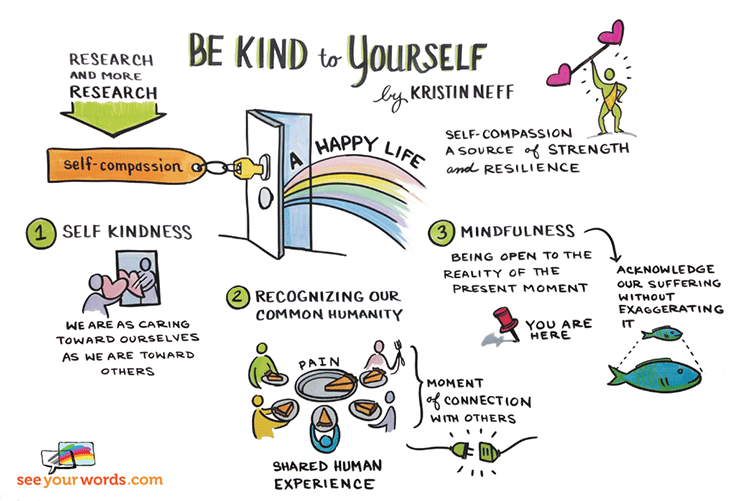Blog post written by Suzanne Dietrich, RD, Gut Instincts Nutrition Counselling
When life deals us tough situations it's common to turn to one of the quickest, most gratifying ways to numb the emotions that arise - food. Do you eat emotionally? What does it look like for you? Does it look like eating beyond your fullness cues or ignoring your hunger cues? Emotional eating can exist upon a continuum. At one end it might be not eating at all, while at the other end it might be eating a lot. For some people where they fit on the continuum might change with the type of emotion. Read further for a fresh perspective on emotional eating.
Just like our body sends us signals to go to the bathroom, go to sleep, sit down, stand up, etc., our body sends signals when we are hungry for food and when we are full. These signals can be interrupted or hard to hear when we are dealing with stress or illness. With emotional eating, one might not be able to tune into these cues because they are distracted by emotions, or they might choose to ignore them. For many emotional eating is looked at as very negative, but let's look at some alternatives here...
Drop the guilt & shame - Believe it or not, when a client shares with me that they have been emotionally eating I often respond by saying, "I'm glad you found a way to deal with those tough emotions during those hard moments." Sometimes it is hard to bring out your best coping skills, maybe eating is one of them for you. For many, a feeling of guilt or shame is attached to this emotional eating. But are self-induced feelings of guilt and shame helpful? Maybe? For most people, they are not. Can you drop the side of guilt and shame? What about viewing emotional eating as a window of opportunity about what is going on inside of you?
Be Aware - Can you use these moments of discomfort as an awareness opportunity? Can you name your emotions? Evelyn Tribole & Elyse Resch, authors of the Intuitive Eating Workbook say that "the tendency to eat emotionally could provide you with a strange gift.... this urge is actually a voice from within." One helpful way to remember this is the phrase "Name it to tame it," coined by Dr. Dan Siegel.
Permission to sit with your feelings - Your emotions deserve to be dealt with and your needs deserve to be met. Can you give yourself that permission? You don't need to act on these right away, even being able to sit with them and feel them can be helpful. Becoming an intuitive eater is about taking time to figure out emotional triggers. If you feel an urge to eat when you are not physically hungry or restrict when you are physically hungry - can you set the timer for 5 minutes and try to identify some of your feelings in a quiet spot? Often we don't give ourselves permission to acknowledge our emotions and they get left behind or stuffed down. If you need help with this, consider seeing a therapist for guidance.
Meet Basic Needs - Once you have given yourself permission to identify your emotions, figure out your needs. If your basic needs are not being met - such as sleep, life balance, nourishment from food, and stress management - you may not actually be emotionally eating - you may just be disconnected because of limited self-care. Either way, how can you meet these needs? I know it is easier said than done. Just remember it doesn't need to be perfect. Here are some questions to ask yourself....
Do you need more restful sleep?
Do you need a more regular eating routine? Or more variety in your eating?
Do you need to give yourself permission to be more relaxed about nourishing and/or play foods? Dieting or too many food rules and lead to uncomfortable hunger & fullness.
Do you need more alone time or social time?
Are there maintainable boundaries that you would like to set for yourself? Is it time to take a vacation from social media?
Act with self-compassion - Dr. Kristin Neff, Psychologist first established the self-compassion as a field of study (here & here).
The beautiful visual graphic above designed by Johnine Byrne is a great way to see the 3 principles of self-compassion - 1) Self Kindness 2) Recognizing our common humanity & 3) Mindfulness. Research tells us that self-compassion is linked to less severe binge eating, found here (Godfrey et al., 2015) and here, (Webb and Forman, 2013). Research has also demonstrated self-compassion might be a beneficial approach for reducing body dissatisfaction and disordered eating, see here, (Braun et al, 2016).
Ultimately the question to ponder is: Is this emotional eating/or not eating interrupting my ability to live life? If so, how can I expand my coping toolbox? Intuitive Eating is a way to develop peace with food.
*See the entire blog, with graphics and video clip at: https://www.gutinstincts.ca/blog/what-is-emotional-eating-gut-instincts-nutrition-counselling.htm


